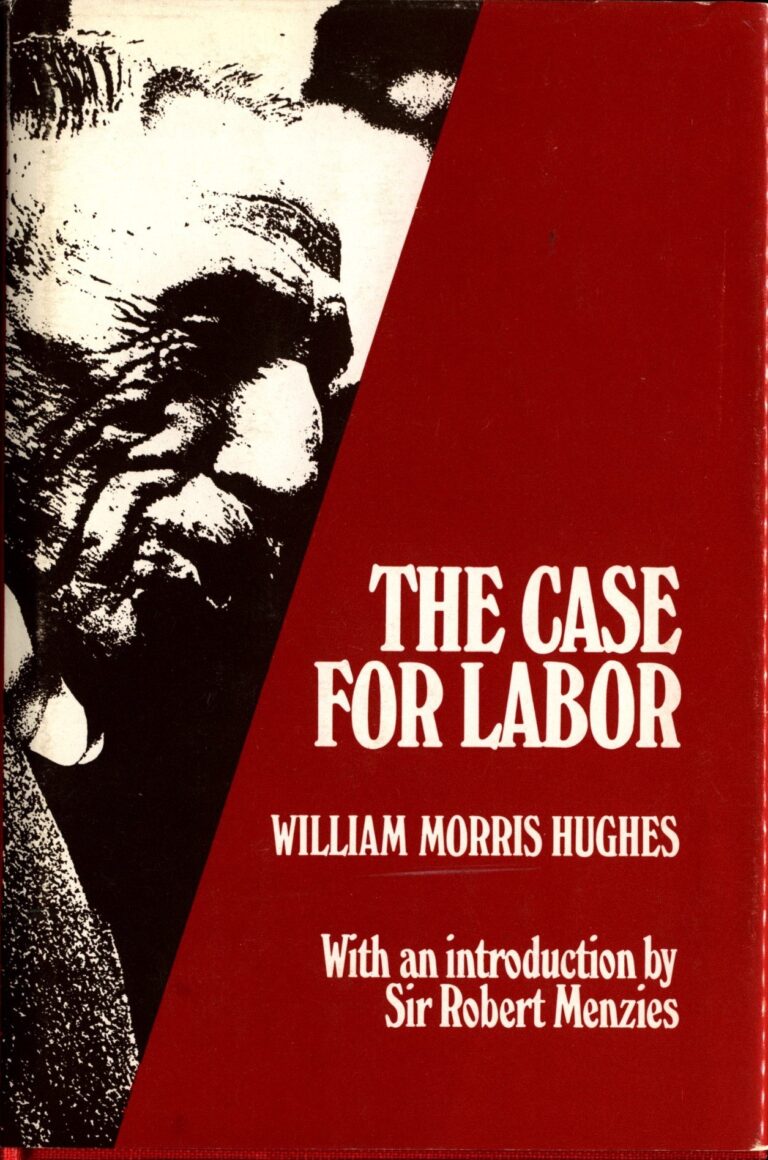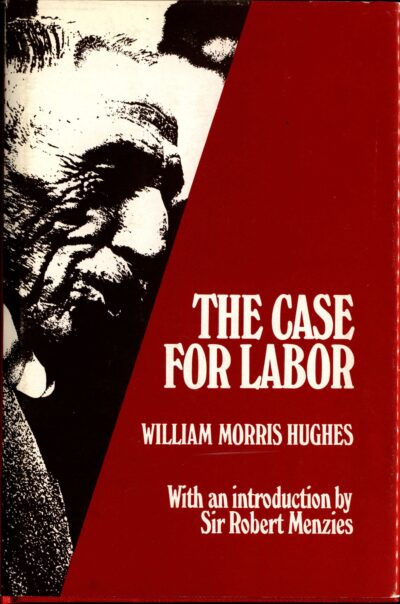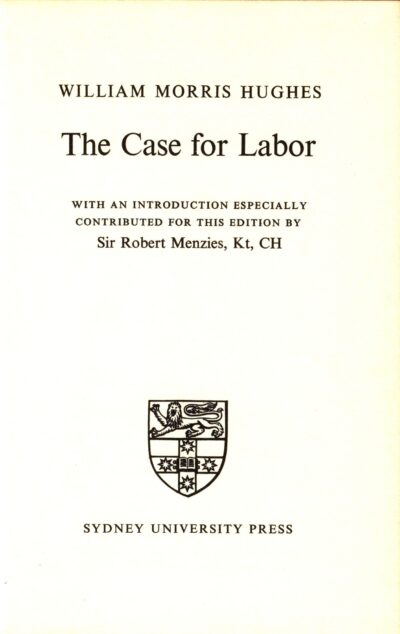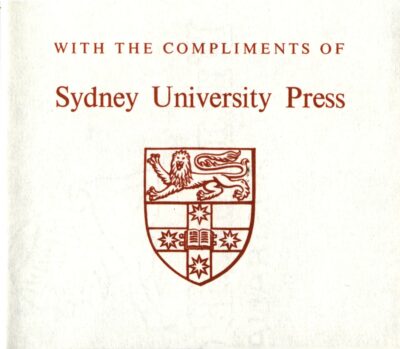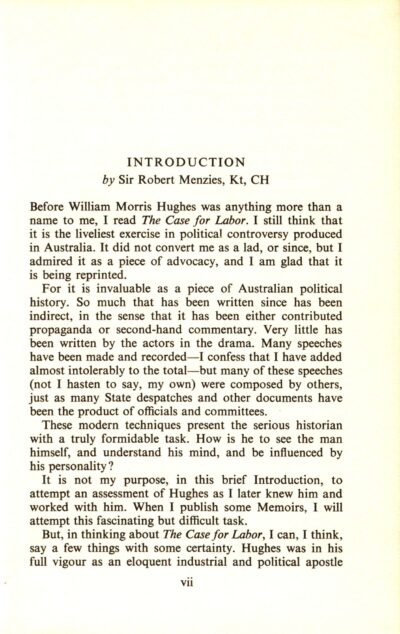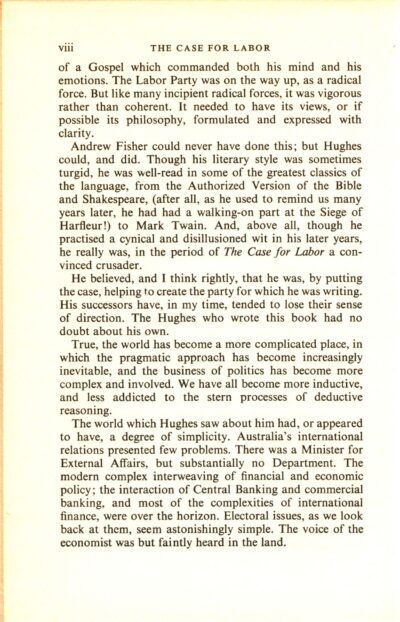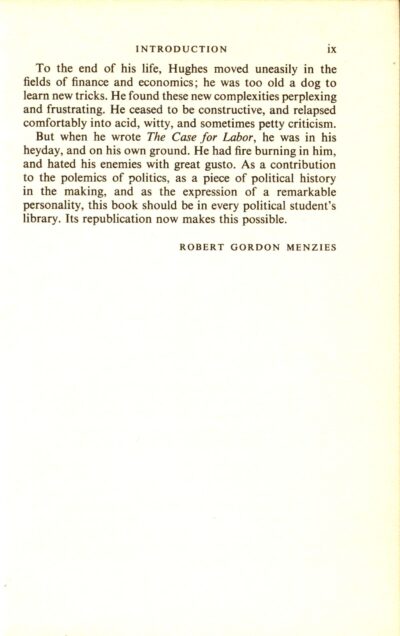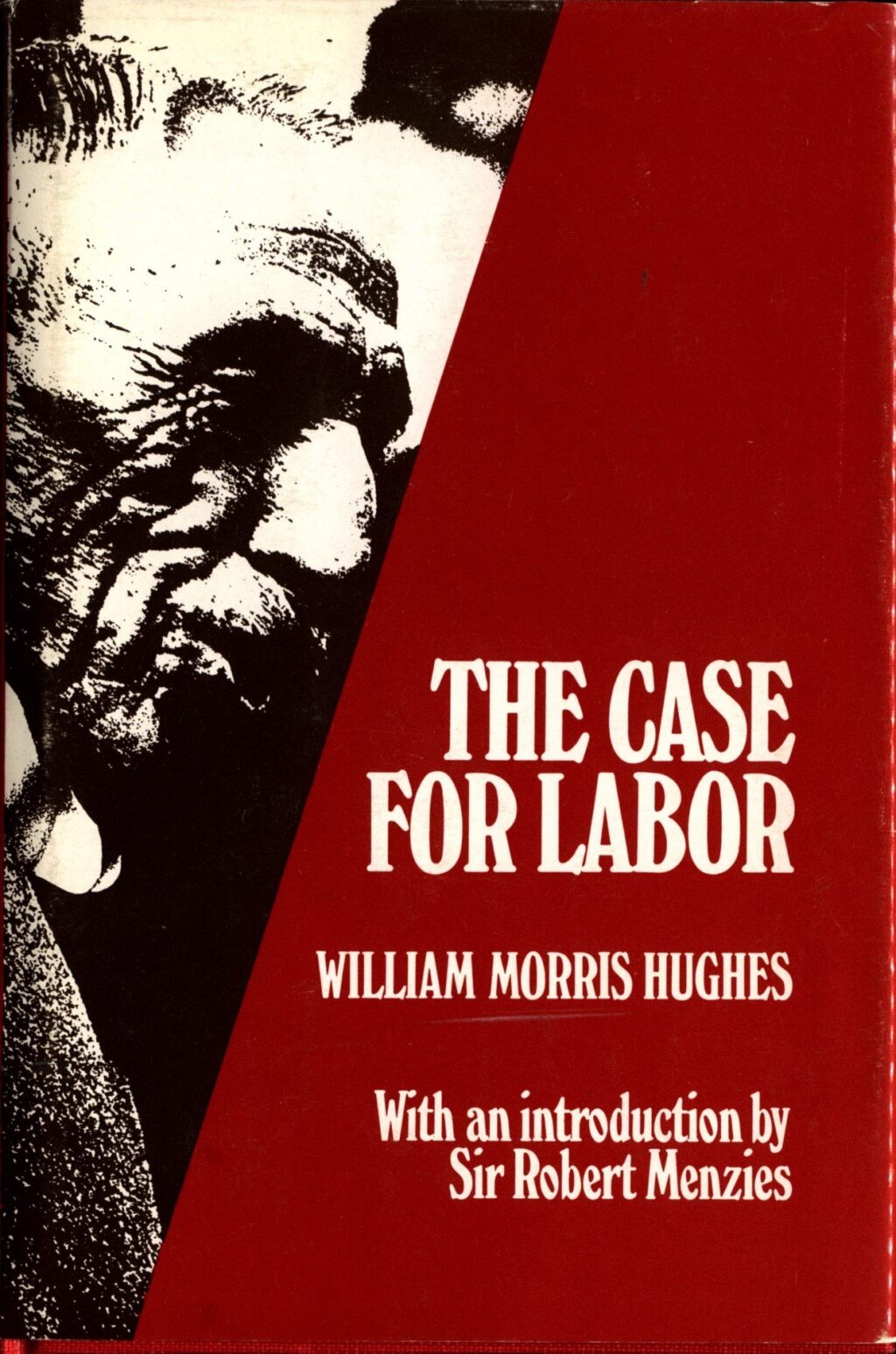W.M. Hughes, The Case for Labor (1970)
William (Billy) Morris Hughes was Australia’s seventh prime minister and a central figure in 20th century Australian history. Serving in Federal Parliament for over 50 years from 1901-1952, he was famously at one time or another a member of every major political party, with the exception of the Country Party.
By the time Robert Menzies entered the Federal Parliament in 1934, Hughes’s ‘great days were behind him’. The two men worked together as members of the Lyons Cabinet, but Menzies thought that Lyons had made a mistake in making Hughes a Minister, and that essentially he should have already retired. Hughes was functionally deaf, ‘having to be compassed about by a great cloud of hearing devices’, and his ‘contributions to discussion in Cabinet were almost invariably destructive’.
These ill-feelings would only grow when Menzies became Prime Minister in April 1939. With the onset of war rapidly approaching, Menzies felt the need to include Hughes in his Cabinet considering the weight of his experience as wartime PM during World War One. However, Menzies was once again disappointed that the ‘legendary war-horse’ now acted merely as a critic of any positive plan his colleagues proposed. Despite Hughes having previously been an immense proponent of conscription, Menzies found Hughes to be the lone dissenter against proposals to re-introduce compulsory military training and recruit a second AIF for overseas service. Menzies believed that Hughes had by then ‘developed an exaggerated fear of public opinion and a much reduced capacity for judging it’.
When Menzies resigned as prime minister and leader of the UAP, Hughes replaced him in the latter position, though ‘quite nominally’, as he did not convene party meetings or organise debates. Hughes did not even lead the Coalition to the 1943 election, deferring to Country Party Leader Arthur Fadden. When that election produced a disastrous result for the centre-right, Menzies would oust Hughes and regain the UAP leadership.
Despite their poor personal relationship, Menzies maintained a huge respect for what Hughes had achieved as a politician before he had ever met him. In particular, Menzies was quite fond of The Case for Labor, a compilation of a series of articles published in Sydney’s Daily Telegraph in which Hughes would apply a Labor perspective to the issues of the day. They were written during the original clashes of the Deakin/Cook Commonwealth Liberal Party with Andrew Fisher’s ALP, and in his memoir Afternoon Light, Menzies described the work as a ‘masterpiece of political polemics’. While the medium was changed from newsprint to radio, it appears likely that the series was partly an inspiration for Menzies’s own series of wartime broadcasts made famous by the Forgotten People address. The most important connection is that both series were condensed into books which served as ‘summarised political philosophies’ on which enduring political parties could be built.
With this admiration for Hughes’s work, when The Case for Labor was republished in 1970, Menzies was induced to write the foreword:
‘Before William Morris Hughes was anything more than a name to me, I read The Case for Labor. I still think that it is the liveliest exercise in political controversy produced in Australia. It did not convert me as a lad, or since, but I admired it as a piece of advocacy, and I am glad that it is being reprinted.
For it is an invaluable piece of Australian political history. So much that has been written since has been indirect, in the sense that it has been either contributed propaganda or second-hand commentary. Very little has been written by actors in the drama. Many speeches have been made and recorded – I confess that I have added almost intolerably to the total – but many of these speeches (not I hasten to say, my own) were composed by others, just as many State despatches and other documents have been the product of officials and committees.
The modern techniques present the serious historian with a formidable task. How is he to see the man himself, and understand his mind, and be influenced by his personality?
It is not my purpose, in this brief introduction, to attempt an assessment of Hughes as I later knew him and worked with him. When I publish some Memoirs I will attempt this fascinating but difficult work.
But, in thinking about The Case for Labor, I can, I think, say a few things with some certainty. Hughes was in his full vigour as an eloquent industrial and political apostle of a Gospel which commanded both his mind and his emotions. The Labor Party was on the way up, as a radical force. But like many incipient radical forces, it was vigorous rather than coherent. It needed to have its views, or if possible its philosophy, formulated and expressed with clarity.
Andrew Fisher could never have done this; but Hughes could and did. Though his literary style was sometimes turgid, he was well-read in some of the greatest classics of the language, from the Authorized Version of the Bible and Shakespeare, (after all, as he used to remind us many years later, he had a walking on part at the Siege of Harfleur!) to Mark Twain. And, above all, though he practised a cynical and disillusioned wit in his later years, he really was, in the period of The Case for Labor a convinced crusader.
He believed, and I think rightly, that he was, by putting the case, helping to create the party for which he was writing. His successors have, in my time, tended to lose their sense of direction. The Hughes who wrote this book had no doubt about his own.
True, the world has become a more complicated place, in which the pragmatic approach has become increasingly inevitable, and the business of politics has become more complex and involved. We have become more inductive, and less addicted to stern processes of deductive reasoning.
The world which Hughes saw about him had, or appeared to have, a degree of simplicity. Australia’s international relations presented few problems. There was a Minister for External Affairs, but substantially no Department. The modern complex interweaving of financial and economic policy; the interaction of Central Banking and commercial banking, and most of the complexities of international finance, were over the horizon. Electoral issues, as we look back at them, seem astonishingly simple. The voice of the economist was but faintly heard in the land.
To the end of his life, Hughes moved uneasily in the fields of finance and economics; he was too old a dog to learn new tricks. He found these new complexities perplexing and frustrating. He ceased to be constructive, and relapsed comfortably into acid, witty, and sometimes petty criticism.
But when he wrote The Case for Labor, he was in his heyday, and on his own ground. He had fire burning in him, and hated his enemies with great gusto. As a contribution to the polemics of politics, as a piece of political history in the making, and as the expression of a remarkable personality, this book should be in every political student’s library. Its republication now makes that possible.’
You might also like...
Sign up to our newsletter
Sign up for our monthly newsletter to hear the latest news and receive information about upcoming events.

